In this article, I will discuss the Best Hosting For Java Web Applications, particularly for those who are looking for a hosting provider with good performance, high scalability, and features catered to Java.
Whether you are creating a little project or an enterprise-level application, selecting the right host has a huge impact on success. For your requirements, try out AWS, Heroku, and Linode.
Key Point & Best Hosting For Java Web Applications List
| Hosting Provider | Key Point |
|---|---|
| Heroku | Simplifies deployment with built-in support for Java frameworks like Maven and Gradle. |
| Red Hat OpenShift | Kubernetes-based platform offering advanced scalability and container management for Java apps. |
| Vultr | Cost-effective cloud infrastructure with flexible compute options for Java hosting. |
| HostGator | Known for shared and VPS hosting; suitable for smaller-scale Java apps with budget-friendly plans. |
| IBM Cloud | Provides enterprise-level cloud solutions and full support for deploying Java applications using Kubernetes and virtual servers. |
| BlueHost | Primarily known for WordPress hosting, but offers dedicated server plans that support Java applications. |
| Liquid Web | High-performance hosting with managed services ideal for complex Java app deployments. |
| Linode | Provides affordable Linux-based servers, allowing full control over Java app configurations. |
| Amazon Web Services (AWS) | Offers highly scalable and customizable cloud solutions with services like Elastic Beanstalk for Java deployment. |
| Google Cloud Platform (GCP) | Advanced cloud services with App Engine and Compute Engine for running Java applications efficiently. |
10 Best Hosting For Java Web Applications
1. Heroku
Heroku is perfect for hosting Java web applications as it is available for free and has a very easy user interface.
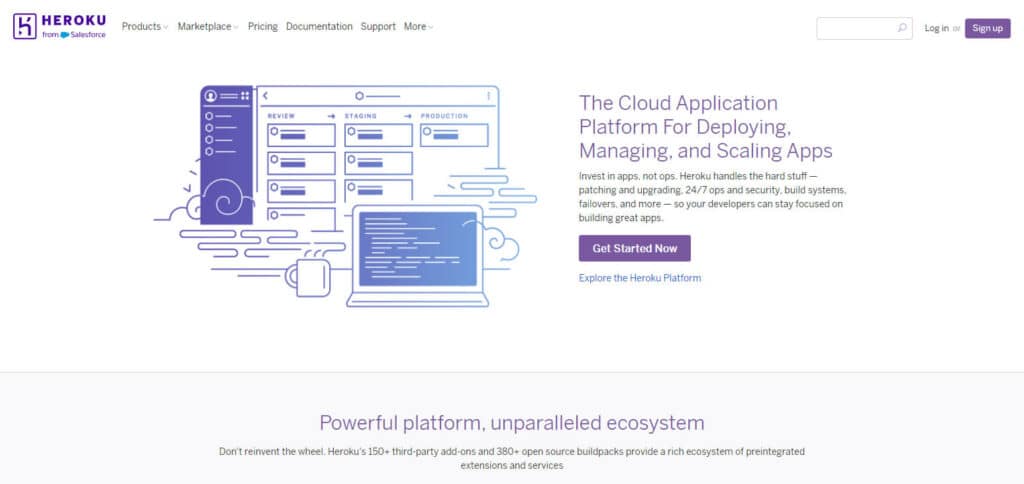
One of the Java build automation tools supported by Heroku is Maven and Gradle, which makes it easy for Java developers to deploy apps without ease without managing infrastructure.
Looking at its PaaS-based model, Heroku simplifies scaling operations and integration of several add-ons which are useful considering not many developers are looking for complex hosting for their Java applications.
Heroku Features
2. Red Hat OpenShift
Red Hat OpenShift is an excellent platform for hosting Java web applications as it is built on Kubernetes technology which offers high scalability and efficient management of containers.
It has Java frameworks and offers deployment, monitoring, and scaling tools.
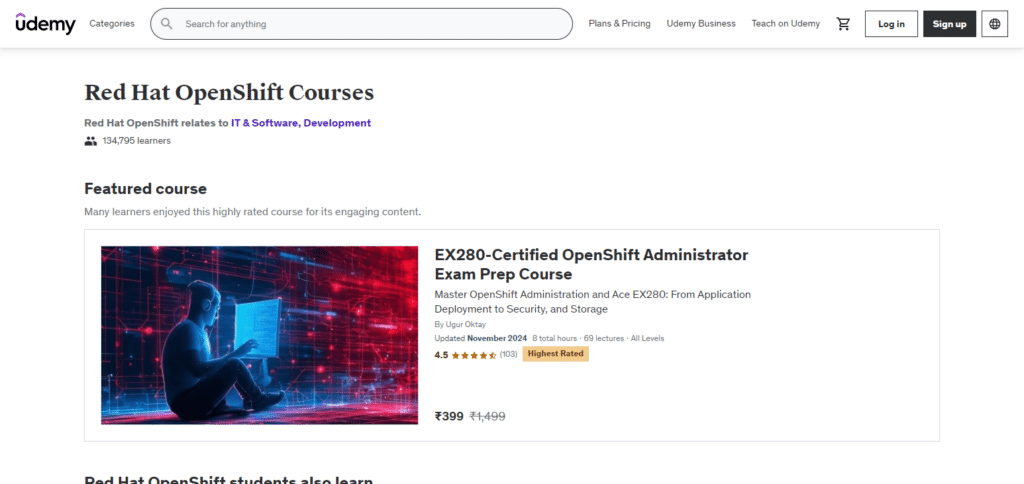
With such a comprehensive architecture, OpenShift allows developers to deploy sophisticated Java applications with ease and control.
It is an enterprise-level hosting provider that businesses would appreciate as it allows many customization options and is extremely dependable.
Red Hat OpenShift Features
3. Vultr
Vultr is a provider that supports various environments for Java web applications; this includes cost-effective and flexible cloud infrastructure.
Thanks to scalable virtual machines and multiple data centers worldwide, Vultr ensures low latency and high Java deployment performance.

Developers can personalize their environments and frameworks, install Javas, and manage resources.
Its extensiveness and ease of use allow us to conclude that Vultr can be a good fit for many start-ups and small to medium Java projects.
Vultr Features
4.HostGator
To begin with, most people are already familiar with HostGator due to their shared and VPS hosting services.
They provide practical Java deployments for small-scale web-host applications but do not offer dedicated cloud services as seen in more specialized providers.

Still, they are dependable, offer cost-effective subscriptions, and are simple to install and set up; this is good for those with basic requirements regarding Java hosting.
The range of plans allows for efficient deployment of Java applications to dedicated or virtual servers at a lower cost.
HostGator Features
5. IBM Cloud
IBM Cloud is a top-notch and cost-efficient hosting platform for Java web apps. It offers K8s and virtual servers, which make it extremely secure and scalable.
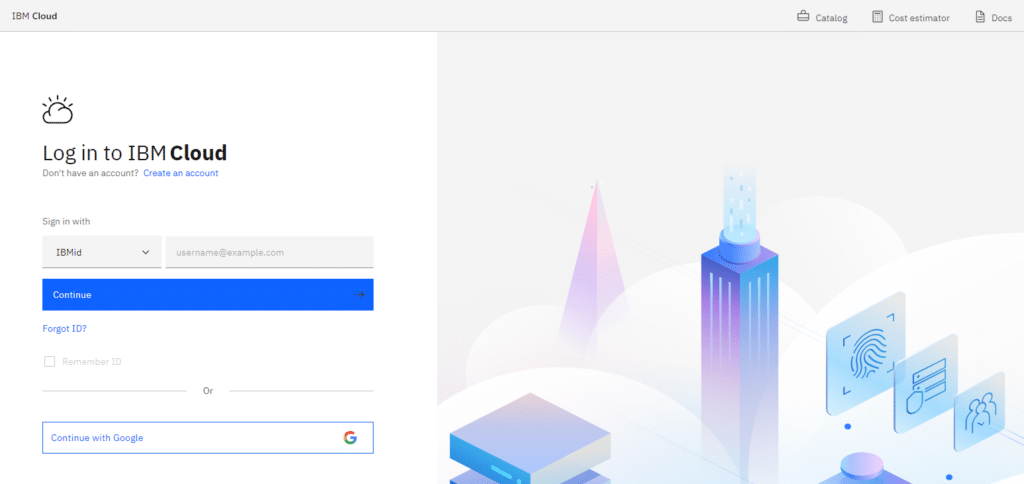
Moreover, deploying and managing Java apps is a breeze, thanks to IBM Cloud’s array of deployment, monitoring, and automation tools.
For enterprise applications, it’s the perfect solution because it is a complete cloud platform. Hence, both availability and reliability are always maintained, necessitating the deployment of Java applications in demanding environments.
IBM Cloud Features
6.BlueHost
BlueHost is very popular for people looking for WordPress hosting, but it also has dedicated server plans that can run Java web applications.

Thanks to its dependable infrastructure, high uptime, and scalable resources, developers can run Java apps suitable for small and medium projects with the desired control and performance.
BlueHost is not Java-specific, but its cheap price and easy setup attract many people who want to use reasonable hosting with the possibility for modification.
Bluehost Features
7. Liquid Web
Liquid Web seems to be a reliable host for Java web applications because of its managed hosting services.
Because of its in-house dedicated servers and VPS, Java developers have full control of their applications and the speed and reliability they need to deploy quickly.

Liquid Web enjoys high-level security features, responsive customer service, and active management of performance resources that make it suitable for large and demanding Java applications.
Such services guarantee that deployment and management are common activities for developers.
Liquid Web Features
8. Linode
Linode has always been economical and reliable and provides full, custom virtual servers. It allows developers to customize their environments to run Java frameworks through full root access.

Performs well because of its scalable infrastructure and the existence of multiple data centers around the globe.
Their pricing strategy is attractive, which is especially beneficial for start-ups or mid-sized java related projects.
Linode Features
9. Amazon Web Services (AWS
Java web applications can be reliably hosted easily on Amazon Web Services or AWS. The processes carried out during application hosting can quickly be scaled and modified through the cloud service.
Tools like AWS Elastic Beanstalk allow developers to seamlessly deploy, operate, and extend Java applications.
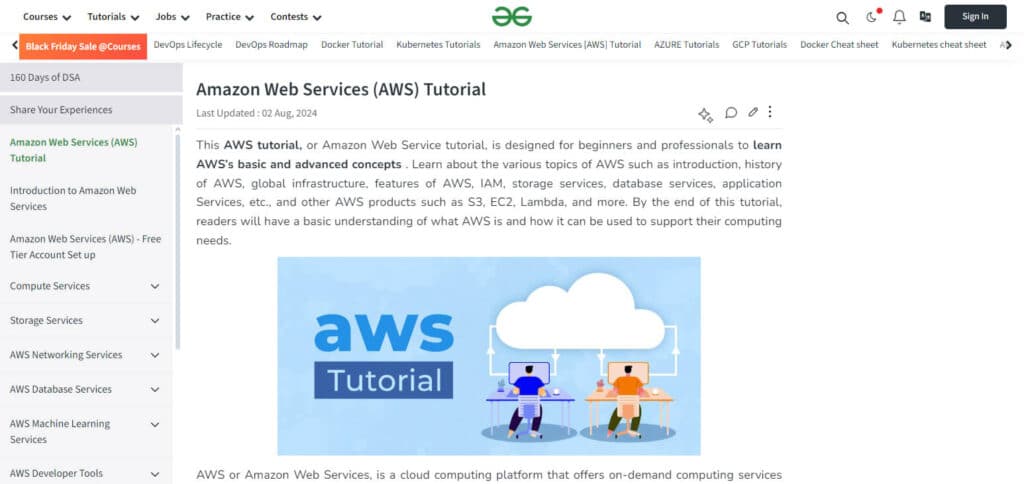
AWS provides effective governance, comprehensive security, and powerful automation resources that guarantee stability and effectiveness.
There is a wide range of data centers within the platform’s ecosystem, which is suited for domestic and global Java deployment, whether a large enterprise or a mini one.
Amazon Web Services (AWS Features
10. Google Cloud Platform (GCP)
Google Cloud Platform (GCP) is perhaps the best option for hosting Java web applications with the help of cutting-edge cloud services such as App Engine and Compute Engine that allow for rapid deployment and scaling.
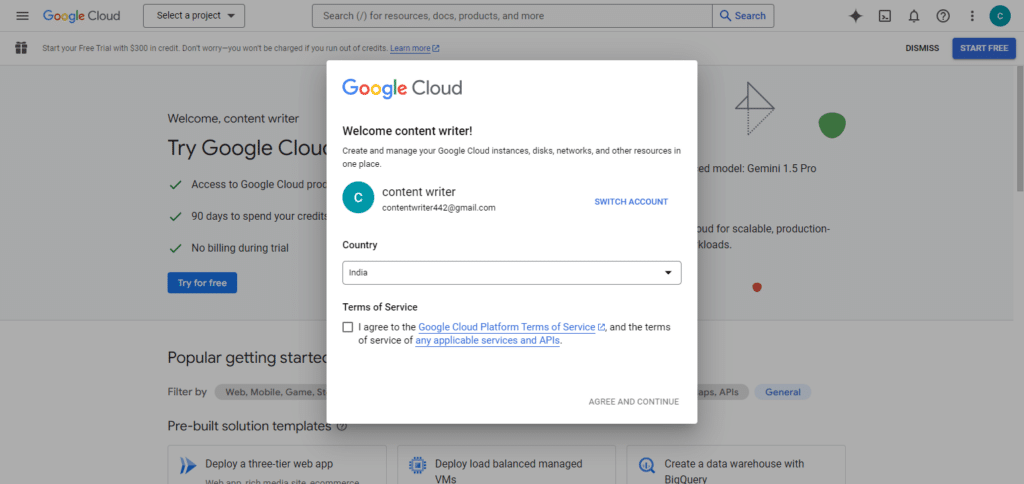
Several Java frameworks are supported by GCP so that application development and management are easy for developers.
For large-scale Java projects, this platform is particularly suitable due to its capabilities, built-in machine learning capabilities, and high availability since it offers versatility alongside excellent performance.
How To Select Best Hosting For Java Web Applications
Assess Applications requirements
Before anything, you need to analyze your application’s size, complexity, and scalability. Choosing a host that can support all the applicable frameworks, tools, and dependencies is also important.
Research Hosting Types
You can go for shared VPS, dedicated servers, or even cloud hosting, depending on your needs. Explore options such as AWS or GCP for impressive scalability and more control. If you have a smaller app, VPS options like Vultr or Linode would be sufficient.
To focus on performance
Ensure you go through hosting providers with high uptime, several server locations, and many more resources for improved speed.
Verify Java Compatibility
Always check whether the host supports Java frameworks (such as Spring, hibernate) and build tools (such as Maven, Gradle). Red Hat OpenShift and Heroku are good options if you are a Java developer.
Amalgamation and Automation
Make use of AWS Elastic Beanstalk or Google Cloud app engine. These particular platforms support auto-scaling and CI/CD, meaning it’s a seamless integration to microservices architecture.
A feature including security “Security features
In the process of choosing a host, don’t forget to evaluate the security protocols, including SSL certificates, DDoS protection, and regular backups. Consider going with Liquid Web or IBM Cloud for improved security.
Round-the-clock customer support
When choosing a host, ensure that it is reliable because their round-the-clock support will help in many areas while troubleshooting Java apps in particular. You can consider going with Liquid Web or Host Gator.
Conclusion
The factors of concern when choosing the best hosting for Java web applications mainly depend on the specific needs of the project, which include Scaling, Performance, and Budget.
For instance, Heroku and Red Hat OpenShift are platforms that easily provide simplicity while automating a lot, and hosting Java applications on AWS and Google Cloud is very much directed toward enterprise needs.
For smaller projects, Vultr and Linode are acceptable options with cheap pricing. When shifting from one host to a new one, ensure that the new hosting provider offers all the necessary features required to deploy Java applications, such as compatibility, reliability, and support.












Leave a Reply